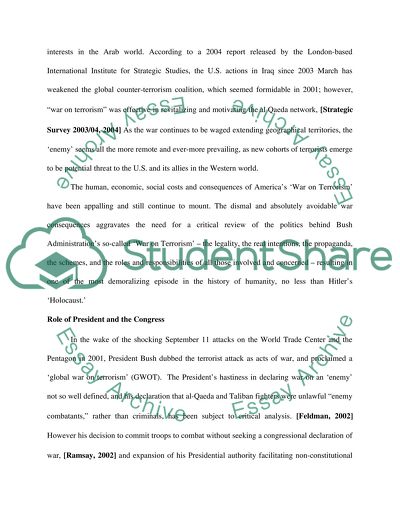Cite this document
(“A Primer in the Politics of the War on Terror Essay”, n.d.)
Retrieved from https://studentshare.org/politics/1529698-a-primer-in-the-politics-of-the-war-on-terror
Retrieved from https://studentshare.org/politics/1529698-a-primer-in-the-politics-of-the-war-on-terror
(A Primer in the Politics of the War on Terror Essay)
https://studentshare.org/politics/1529698-a-primer-in-the-politics-of-the-war-on-terror.
https://studentshare.org/politics/1529698-a-primer-in-the-politics-of-the-war-on-terror.
“A Primer in the Politics of the War on Terror Essay”, n.d. https://studentshare.org/politics/1529698-a-primer-in-the-politics-of-the-war-on-terror.


